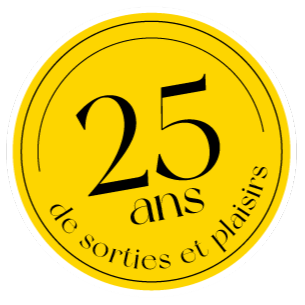Anaïs Barbeau-Lavalette: her debut novel reminds us that « HoMa » is just a silly buzzword
Michael-Oliver Harding
Ritalin-addled Kevin only ever comes alive in Hochelaga’s church basements, marvelling at his dad, otherwise known as “Big” the wrestler. Mélissa, left to fend for her two younger siblings, dreads running into the mother who abandoned them to whore herself away on Ontario Street. Roxane goes to great lengths to avoid the deadbeat drunk of a mom she shares a flat with, all the while exchanging her empty beer bottles each morning for a May West at the dépanneur.
Kevin, Mélissa and Roxane all live in the same Hochelaga-Maisonneuve housing unit, and are at the heart of Anaïs Barbeau-Lavalette’s first novel, Je voudrais qu’on m’efface. Anaïs is known for bringing marginalised and disempowered communities from the world over into view with her documentaries (look out for Se souvenir des cendres, a film she directed in Jordan during the shoot for Denis Villeneuve’s Incendies) and her well-received debut feature Le Ring. Her work is grounded in a kind of social realism that recalls the cinema of Ken Loach and the Dardenne brothers.
Not bad for a gal you might (ever-so fondly) remember as Isabelle on Télé-Québec’s late 80’s teen science show Le club des 100 watts. Daughter to doc filmmaker Manon Barbeau and director of photography Philippe Lavalette, Anaïs had been exposed to abject poverty and social woes in some of the world’s toughest areas long before recognizing social distress in her own city. “I had accumulated a lot of powerlessness through travelling to all these places,” an impassioned Anaïs tells me in mid-July at an East end café. “But the reality of other countries was far away, and I was searching for what I could do here. I felt as though I had to do something tangible.”
DO THE RIGHT THING
In an attempt to tap into her geographical roots, Anaïs started a community organization to assist troubled kids in Hochelaga, in partnership with well-respected Quebec pediatrician Dr. Julien. The experience was so impactful that it served as catalyst for a doc, a feature AND a novel. In Je voudrais qu’on m’efface, Anaïs revisits the hood she’d previously explored in Le Ring, with its wrestler fandemonium, predilection for porcelain Dollarama figurines and queues for lottery tickets at the dépanneur when welfare cheques come in.
To her credit, the book’s potent dialogue practically jumps off the page and into your eardrums, with its dynamic inflections and distinctive East end vernacular. Anaïs clearly had a field day playing with words and rhythm, and the characters will ring true to any 514-attuned city dweller. “I know there isn’t a lot of punctuation in my novel, but these are kids who don’t have any punctuation marks in the way they think either,” Anaïs tells me with great affection. “It’s a neighbourhood that’s constantly bursting with raw energy. You don’t insert commas into their train of thought… it just comes out like a discharge.”
It’s precisely the less polished nature of the neighbourhood, with its rambunctious spirit, ungroomed alleyways and heartiest of laughs, that speaks to Anaïs and has kept her coming back. “I mean sure, it’s rougher,” she concedes. “But I find there’s a strong social fabric there that’s only palpable in those areas. There’s something really authentic, really alive there.”
Je voudrais qu’on m’efface (in French only)
Available in bookstores on September 16
Éditions Hurtubise | editionshurtubise.com
Se souvenir des cendres
Broadcast dates: Saturday, September 18 & 25, 10:30 p.m. on Radio-Canada
